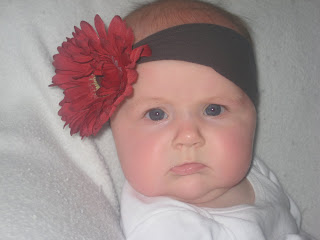I have long believed (and shared with some friends) that the miraculous benefits of breastfeeding may be slightly overstated. My theory has always been that women who take the time to breastfeed may also be more likely to take the time to read, sing and talk to their infant. Well, I've been vindicated. I just saw
this article in The Atlantic. It pretty much confirms with research all of my suspicions. It's a long article, so if you don't care to read it all, here are my favorite clips
:
"The debate about breast-feeding takes place without any reference to its actual context in women’s lives. Breast-feeding exclusively is not like taking a prenatal vitamin. It is a serious time commitment that pretty much guarantees that you will not work in any meaningful way. Let’s say a baby feeds seven times a day and then a couple more times at night. That’s nine times for about a half hour each, which adds up to more than half of a working day, every day, for at least six months. This is why, when people say that breast-feeding is “free,” I want to hit them with a two-by-four. It’s only free if a woman’s time is worth nothing."
"This year alone I had two friends whose babies could not breast-feed for one reason or another, so they mostly had to pump. They were both first-time mothers who had written themselves dreamy birth plans involving hot baths followed by hours of intimate nursing. When that didn’t work out, they panicked about their babies’ missing out on the milky elixir. One of them sat on my couch the other day hooked up to tubes and suctions and a giant deconstructed bra, looking like some fetish ad, or a footnote from the Josef Mengele years." (anyone whose been to our house at "milking time" has witnessed this)
"In her critique of the awareness campaign, Joan Wolf, a women’s-studies professor at Texas A&M University, chalks up the overzealous ads to a new ethic of “total motherhood.” Mothers these days are expected to “optimize every dimension of children’s lives,” she writes. Choices are often presented as the mother’s selfish desires versus the baby’s needs. As an example, Wolf quotes What to Expect When You’re Expecting, from a section called the “Best-Odds Diet,” which I remember quite well: “Every bite counts. You’ve got only nine months of meals and snacks with which to give your baby the best possible start in life … Before you close your mouth on a forkful of food, consider, ‘Is this the best bite I can give my baby?’ If it will benefit your baby, chew away. If it’ll only benefit your sweet tooth or appease your appetite put your fork down.” To which any self-respecting pregnant woman should respond: “I am carrying 35 extra pounds and my ankles have swelled to the size of a life raft, and now I would like to eat some coconut-cream pie. So you know what you can do with this damned fork.” I categorically HATE the book "What to Expect..."
"The problem is, breast-fed infants are typically brought up in very different families from those raised on the bottle. In the U.S., breast-feeding is on the rise—69 percent of mothers initiate the practice at the hospital, and 17 percent nurse exclusively for at least six months. But the numbers are much higher among women who are white, older, and educated; a woman who attended college, for instance, is roughly twice as likely to nurse for six months. Researchers try to factor out all these “confounding variables” that might affect the babies’ health and development. But they still can’t know if they’ve missed some critical factor. “Studies about the benefits of breast-feeding are extremely difficult and complex because of who breast-feeds and who doesn’t,” says Michael Kramer, a highly respected researcher at McGill University. “There have been claims that it prevents everything—cancer, diabetes. A reasonable person would be cautious about every new amazing discovery.” Seriously, I could write this stuff.
I really feel that I am one of those anomalous women who can't successfully breastfeed. I am also a white, educated and upper-middle class, which means the pressure to breastfeed (both socially and self-imposed) is great. I think about this subject a lot (I have a lot of time to think while I am pumping) and really feel like we need to give each other the benefit of the doubt. I can't think of a single one of my friends who doesn't want the absolute best for her children. May we all be free to decide what "best" means without judgment...























